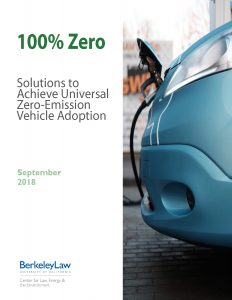 In my Berkeley Law research on electric vehicles (such as our recent 100% Zero report), I’ve heard repeatedly from EV experts that auto dealer unwillingness to sell and market the vehicles is a significant barrier to deployment.
In my Berkeley Law research on electric vehicles (such as our recent 100% Zero report), I’ve heard repeatedly from EV experts that auto dealer unwillingness to sell and market the vehicles is a significant barrier to deployment.
And the numbers suggest why that might be the case. As E&E News reported [pay-walled] in a recent article on Palo Alto EVs:
The average dealer in the U.S. grossed about $1.75 million in profits last year from selling new cars, according to the National Automobile Dealers Association. Those profits are generally declining. That same dealer made about $3.3 million on service and parts, a figure that has been rising. In other words, dealers are making less and less money selling cars, and more and more from maintaining them.
So why should car dealers have any incentive to promote electric vehicles to customers, when they have essentially no maintenance needs and few parts to replace? As one dealer described in the article, EVs require about as much care as a toaster. Dealers have otherwise grown accustomed to generous returns from maintenance contracts on repair-intensive internal combustion engine vehicles.
The cost data described above help explain why an EV-focused company like Tesla foregoes the traditional dealer model in favor of direct sales. Until we solve the dealer problem, it’s likely to remain a bottleneck in getting this critical zero-emission technology out to the general public.


